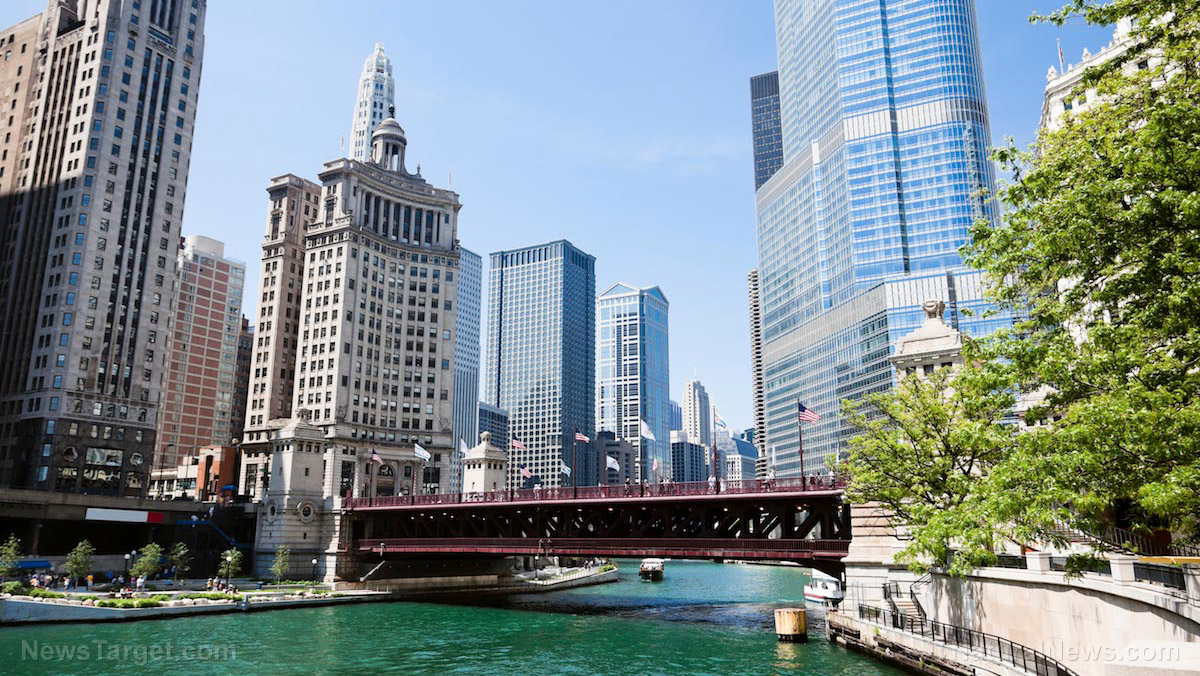Moody’s cuts credit ratings for 10 small and midsize U.S. banks, sending bank stocks plummeting
08/14/2023 / By Ethan Huff

Ten small and midsize banks in the United States have had their credit ratings lowered by Moody’s, this likely due to higher funding costs, potential regulatory capital weaknesses, and increasing risks tied to commercial real estate loans due to plummeting demand for office space.
According to Moody’s, this trifecta of issues means that M&T Bank Corp., Webster Financial Corp., BOK Financial Corp., Old National Bancorp, Pinnacle Financial Partners Inc., and Fulton Financial Corp. all saw a downgrade, while Northern Trust Co. and Cullen / Frost Bankers Inc. are also under review for possible downgrades.
Moody’s also issued a “negative” outlook for 11 different lenders, including PNC Financial Services Group, Capital One Financial Corp., Citizens Financial Group Inc., Fifth Third Bancorp, Regions Financial Corp., Ally Financial Inc., Bank OZK and Huntington Bancshares Inc.
Even though the Biden regime and Wall Street are both trying to plug the holes on their sinking ship by telling the nation that everything is just fine, Moody’s is telling a much different story.
Banks with substantial unrealized losses that have not been captured by their regulatory capital ratios are still susceptible to sudden losses of market or consumer confidence amid a high interest rate environment.
“Rising funding costs and declining income metrics will erode profitability, the first buffer against losses,” Moody’s wrote in a memo. “Asset risk is rising, in particular for small and midsize banks with large CRE exposures.”
(Related: The year 2023 is only halfway over and already the current banking collapse is larger than the one that occurred in 2008.)
American finance is a Ponzi scheme that will eventually bite the dust
Moody’s analysts Jill Cetina and Ana Arsov added to the conversation that U.S. banks as a whole having to contend with high interest rate and increased asset-liability management (ALM) risks carries serious liquidity and capital risks.
They wrote in an accompanying research note that the wind-down of unconventional monetary policy “drains system-wide deposits and higher interest rates depress the value of fixed-rate assets.”
“Meanwhile, many banks’ Q2 results showed growing profitability pressures that will reduce their ability to generate internal capital,” Cetina and Arsov further stated.
“This comes as a mild U.S. recession is on the horizon for early 2024 and asset quality looks set to decline from solid but unsustainable levels, with particular risks in some banks’ commercial real estate (CRE) portfolios.”
Keep in mind that the U.S. is already in a recession based on historical standards and definitions for the word “recession.” Some would even argue that this is a full-blown depression now taking place, though the establishment is in denial about it while it desperately tries to maintain the house of cards intact.
Moody’s is putting it a lot milder, warning that a “mild recession” will arrive next year and that there will be more blood in the streets “given the funding strains on the U.S. banking sector.”
The result will be a tightening of credit conditions and rising loan losses for U.S. banks, the ratings service further indicated about what is soon to come.
“In 1929 right before the crash, the American family could thrive on a median, single income of $2,300, the cost to build a new home was $4,902, an ounce of gold could be bought for $20.67, the stock market closed at a high of 381.2, and living on credit cards would have been dismissed as insane and sinful,” one commenter wrote about the news.
“Since then, the dollar has lost 96% of its value, the country is drowning in debt, families are going under on a median TWO INCOME average of $75k, the average price of a new home few can afford is $445k, gold sits at $1,923, all of which puts the true value of today’s stock market filled with fairy dust, wishful thinking, and hopium at about 1400. Party on.”
How much longer will it be until the criminal enterprise known as American finance bites the dust? Learn more at Collapse.news.
Sources for this article include:
Submit a correction >>
Tagged Under:
banking, banks, BOK Financial Corp, Collapse, credit rating, credit ratings, currency crash, debt collapse, economic riot, finance, finance riot, Fulton Financial Corp, Inflation, M&T Bank Corp, money supply, Moody's, Old National Bancorp, Pinnacle Financial Partners Inc, stocks, Webster Financial Corp
This article may contain statements that reflect the opinion of the author
RECENT NEWS & ARTICLES
COPYRIGHT © 2017 NATIONAL DEBT NEWS




















